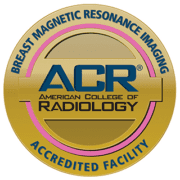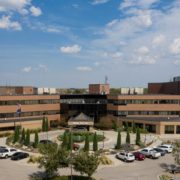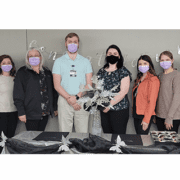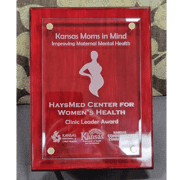HaysMed Athletic Trainers work with local sports teams to help with emergencies, recovery and injury prevention
Hays, KS – Athletic trainers (ATs) play a critical role on sports teams. You’ll often see them on the sidelines and when someone is injured during a sporting event. This is only a portion of their work.
Athletic trainers are multi-skilled health care professionals. They work with athletes in prevention, examination, assessment, treatment and rehabilitation of injuries and medical conditions assuring the fastest and safest return to play.
All athletic trainers must graduate from an accredited education program and pass a comprehensive certification exam. Certification and licensing in athletic training now requires a minimum of a master’s degree. Along with the above they must also keep their knowledge and skills current by participating in continuing education.
HaysMed currently has three full time Athletic Trainers on Staff. Shawn Landers works with Ellis and Victoria schools. Dylan Moore handles Hays High School athletes as well as the Hays Larks in the summer. Jensen Scheele is the athletic trainer for Thomas Moore Prep-Marian Junior/Senior High School and Lacrosse. The athletic trainer staff also cover Kansas State High School Athletic events including wrestling, football, basketball and state cross country.
The athletic trainers’ work starts before the season, with preseason conditioning and injury prevention programs. They review emergency action plans with administration, coaches and emergency medical providers. Athletic trainers inspect equipment and the field for safety issues and help coaches prepare medical kits and safe practice plans.
During the season, athletic trainers attend practice and games. They prepare the emergency equipment, observe and evaluate players and care for injuries. In a game situation, athletes and coaches focus on the game. An athletic trainer’s priority is the athletes’ health and welfare. They watch for situations that cause injuries.
“It is important that Athletic Trainers be at both games and practices,” said Landers. “It gives them the ability to provide enhanced safety and health care for student athletes by addressing injuries on the spot”
Impact isn’t the only important factor identifying a potential injury. Some athletes want to hide their injuries so they can keep playing. ATs watch the athletes get up after hitting the ground and how they return to the huddle or the bench. They watch their faces and pay attention to their body language for signs of injury.
When an injury happens, the athletic trainer responds within seconds, stays calm and evaluates the situation. They identify the safest way to help the athlete back to the bench and then evaluate to determine treatment options. Athletic trainers facilitate a team approach to medical care. They refer to emergency medical providers, involve coaches, administrators and all other medical providers as needed.
“ATs respond immediately to injuries and provider medical care.” Said Scheele. “We are often the first to provide care in emergency situations and quickly perform the initial assessment on an athlete’s condition.”
Athletes and coaches are focused on returning to play. It’s the athletic trainer’s job to maintain a focus on the big picture of the athlete’s health and welfare within the context of sports. They are a part of the medical team that determines if it is safe to return.
Sometimes athletes are kept out of the game to prevent an injury from becoming worse. The athletic trainers progress the athlete through a doctor ordered sport-specific program until they are ready to return safely. If there are any deficits, they work with athletes to determine what they need to do, help motivate them to do it and observe to make sure they do it correctly.
“Think of an athletic trainer as an investment to any sports team.” Noted Moore. “They improve outcomes and specialize in patient education to prevent injury, which translates to reduced health care costs.”
Since athletes trust their athletic trainers with sports injuries, they are often the first provider for other medical conditions that affect athletic performance. These conditions can include managing nutrition, weight control and eating disorders, illness, diabetes, asthma, severe allergies, skin conditions, anxiety and stress, post-surgical concerns and more.
Athletic trainers help athletes by caring for injuries and making referrals when needed before a problem becomes serious. Athletic trainers are attune to these situations and make sure the problems get to the appropriate provider as soon as possible.
Athletic trainers work closely to assure proper communication between the athlete, parents, coaches and medical staff while maintaining medical confidentiality.
“Athletic trainers are an essential part of the Sports Medicine team. They help ensure that student athletes are properly cared for and have a safe environment to participate in sports and extracurricular activities.” Said Dr. Wally Walstrom, board-certified sports medicine physician at Hays Orthopedic Clinic. “While they cannot eliminate the inherent risk of injury in sports, they can help reduce the incidence and severity when injuries do occur.”
They help minimize dysfunction and maximize the return to quality-of-life activities that athletes and their parents, coaches and fans appreciate.










